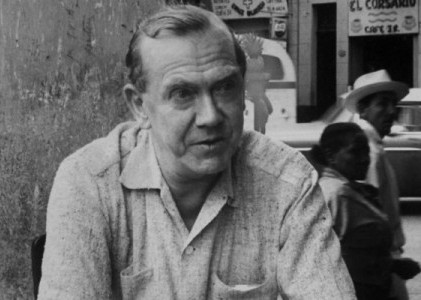This
is the third post on my reading of Graham Greene’s The Power and the Glory.
You
can read Post #1 here.
Post#2
here.
Another
important pairing is the priest with Coral Fellows. Coral is thirteen, just prior to
puberty. But she is profoundly
intelligent, precocious in her empathy, and maybe even prescient in the sense
that she seems to understand things in a way beyond limitations. When her mother tells her father Coral has
been entertaining a policeman at the house, her father goes to interrogate
her. Here’s her introduction to the
scene.
She stood in the doorway
watching them with a look of immense responsibility. Before her serious gaze
they became a boy you couldn’t trust and a ghost you could almost puff away, a
piece of frightened air. She was very young—about thirteen—and at that age you
are not afraid of many things, age and death, all the things which may turn up,
snake-bite and fever and rats and a bad smell. Life hadn’t got at her yet; she
had a false air of impregnability. But she had been reduced already, as it
were, to the smallest terms—everything was there but on the thinnest lines.
That was what the sun did to a child, reduced it to a framework. The gold
bangle on the bony wrist was like a padlock on a canvas door which a fist could
break. (p. 33)
She
carries an air of responsibility (her parents stand as a “boy” before, that is
she becomes their parent), is unafraid, and “reduced” from the sun which I take
to mean thin and smallish. But she comes
across as “impregnable” because “life hadn’t got at her yet.” Despite her intelligence and sense of
responsibility—after all she takes care of her emotionally debilitated
mother—there is a quality of innocence.
All these qualities and with perhaps a certain providential grace, she
understands and gets correct the moral situation before her. She keeps the priest hidden from the police.
What
we learn is that she has lied to the lieutenant about a priest on their property
and has hidden the priest while kept the lieutenant at bay. It is through her directives that first she
resolves the situation with the lingering policeman, then explains to her
father there really is a priest hidden, and finally she takes her father to
him. The father has absolutely no
empathy for the priest. He is the exact
opposite of Coral, refusing to give him drink and food, and insists he leave as
soon as it gets dark.
What
is astonishing is that the “politics” of the situation is completely irrelevant
to Coral. As they are walking to the
barn, her father snaps at the girl, “We’ve no business interfering with
politics.” But Coral responds: This
isn’t politics. I know about politics. Mother and I are doing the Reform Bill”
(37). Her father is completely
configured to the politics. Coral is
configured differently. So she sneaks
back out later.
Coral put down the
chicken legs and tortillas on the ground and unlocked the door. She carried a
bottle of Cerveza Moctezuma under her arm. There was the same scuffle in the
dark: the noise of a frightened man. She said, ‘It’s me,’ to quieten him, but
she didn’t turn on the torch. She said, ‘There’s a bottle of beer here, and
some food.’
‘Thank you. Thank
you.’
‘The police have
gone from the village—south. You had better go north.’
He said nothing.
She asked, with
the cold curiosity of a child, ‘What would they do to you if they found you?’
‘Shoot me.’
‘You must be very
frightened,’ she said with interest.
He felt his way
across the barn towards the door and the pale starlight. He said, ‘I am
frightened,’ and stumbled on a bunch of bananas. (39)
She
feels his hunger, and feeds him secretly.
Not only has she lied to the police, she has disobeyed her father. Why?
She doesn’t really know whether he’s innocent. She helps him because there is a suffering
man who seems to have his dignity reduced.
If the whisky priest is on a passion narrative in this novel—and that is
one way to look at the story—Coral is Veronica wiping the face of Jesus at the
sixth station of the cross. Her reaction
when he tells her of the consequences of being caught is empathy: “You must be
very frightened.” She looks into his
heart and connects with it. The politics
of the world crumble when faced with the humanity before her.
They
continue this heart to heart conversation.
At one point she offers a solution to his situation.
She said, ‘Of course you
could—renounce.’
‘I don’t understand.’
‘Renounce your faith,’
she explained, using the words of her European History.
He said, ‘It’s
impossible. There’s no way. I’m a priest. It’s out of my power.’
The child listened
intently. She said, ‘Like a birthmark.’ (40)
“Like
a birthmark,” she intuits the sacrament of Holy Orders. Like Baptism, Holy Orders is a mark on your
soul that cannot be taken away (see Ps 110:4 “The Lord has sworn and will not waver:
"You are a priest forever in the order of Melchizedek” and echoed in Heb
7:17). She understands his existential
predicament. And so she offers him to
return any time to hide out. She tries
to tech him Morse code and asks him when he comes to signal with two longs and
one short (41). It is interesting that
two longs and one short in Morse code stand for the letter “G.” Why “G”?
Perhaps standing for God?
The
conversation then turns toward God. He
asks her if she believes in God, and she says she has “lost her faith” at the
age of ten. Here now it is the whisky
priest’s turn to talk to her heart. He
tells her twice he will pray for her and gives her hope that with a little
brandy he can “defy the devil.”
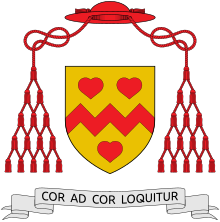
.jpg)
The priest speaks in this language of the heart,
and all the characters respond in some measure also with their hearts, but that
measure is perhaps a level of grace granted to the character. Mr. Tench receives the language of the heart
and is touched enough to break his apathy and write to his wife, who writes
back granting him a divorce. He is
touched enough to feel the heartache of the priest’s death at the end of the
novel.
Coral responds the most, as I’ve pointed out
here. Later we see she has been touched
by the priest when she brings up God and faith to her mother. The priest’s conversation, heart, and,
indeed, his prayers have been working on the girl. In his dream of the night before the
execution, the priest dreams of Coral.
She is there at the feast in heaven, where he sees himself eating
hungrily just like he did when Coral fed him in the barn. In the dream she, who we learn in the course
of the novel has died, taps out Morse code for the priest. Notice also that in heaven she taps out
differently than what she proposed in the barn.
In the dream she taps out three longs and one short. There is no single letter in Morse code for
three longs and a short. Three longs
stand for “O” and one short stands for “E.”
I could be off base here but could those be the vowels surrounding the
word “love”? Of course that’s
speculation, but the one thing for sure is that she communicates with him from
heaven. Heart speaks to heart.
###
The
next paired conversation with the whisky priest that leads to more insight of
the novel is that with Brigitta, his illegitimate daughter. Of all the people in the entire novel, we
know that Brigitta is special to him. It
is almost the first thing he brings up when he comes to his village and sees
her mother, Maria.
He said gently, not
looking at her, with the same embarrassed smile, ‘How’s Brigitta?’ His heart
jumped at the name: a sin may have enormous consequences: it was six years
since he had been—home.
‘She’s as well as the
rest of us. What did you expect?’
He had his satisfaction,
but it was connected with his crime; he had no business to feel pleasure at
anything attached to that past. (p.
61-62)
And
so we see here the paradox of pain and joy.
Later children come by to kiss the hand of a priest, and he looks for
his daughter among them, though he has no idea what she looks like.
The real children were
coming up now to kiss his hand, one by one, under the pressure of their
parents. They were too young to remember the old days when the priests dressed
in black and wore Roman collars and had soft superior patronizing hands; he
could see they were mystified at the show of respect to a peasant like their
parents. He didn’t look at them directly, but he was watching them closely all
the same. Two were girls—a thin washed-out child—of five, six, seven? he
couldn’t tell, and one who had been sharpened by hunger into an appearance of
devilry and malice beyond her age. A young woman stared out of the child’s
eyes. He watched them disperse again, saying nothing: they were strangers. (62-63)
The
continuity of faith between generations has been atrophied. They don’t know the significance of a priest
now that the persecution has been going on since before they were born. It is the girl with the appearance of devilry
that turns out to be his daughter. In
her eyes he sees a “young woman,” not a child.
It is also important to note that he attributes hunger (the “one who had
been sharpened by hunger”) for what I’ll call a loss of innocence. Yes, she is only seven but there is a lack of
innocence in Brigitta that was there with Coral who was twice her age. In fact, when the priest has a moment of
personal anguish, it is Brigitta who laughs at him. The anguish is in reaction to hearing that a
man was executed from not turning in the priest.
He gave a little yapping
cry like a dog’s—the absurd shorthand of grief. The old-young child laughed. He
said, ‘Why don’t they catch me? The fools. Why don’t they catch me?’ The little
girl laughed again; he stared at her sightlessly, as if he could hear the sound
but couldn’t see the face. Happiness was dead again before it had had time to
breathe; he was like a woman with a stillborn child—bury it quickly and forget
and begin again. Perhaps the next would live.
(63-64)
At
this point he still doesn’t know that this is his daughter. Later he specifically asks for her.
He said shyly, ‘And
Brigitta … is she … well?’
‘You saw her just now.’
‘No.’ He couldn’t believe
that he hadn’t recognized her. It was making light of his mortal sin: you
couldn’t do a thing like that and then not even recognize …
‘Yes, she was there.’
Maria went to the door and called, ‘Brigitta, Brigitta,’ and the priest turned
on his side and watched her come in out of the outside landscape of terror and
lust—that small malicious child who had laughed at him. ‘Go and speak to the
father,’ Maria said. ‘Go on.’
He made an attempt to
hide the brandy bottle, but there was nowhere … he tried to minimize it in his
hands, watching her, feeling the shock of human love. (65)
“The
shock of human love” is what makes the priest transcend his sins. It is his love for all humanity—not just in a
general sense but with every specific human being—that makes him a true
Christian. Jesus commands us to love our
neighbor, but it is John in his first epistle that describes it as more than a
commandment but of a thing of the heart.
Beloved, let us love one
another, because love is of God; everyone who loves is begotten by God and
knows God. Whoever is without love does
not know God, for God is love... Beloved, if God so loved us, we also must love
one another. No one has ever seen God.
Yet, if we love one another, God remains in us, and his love is brought to
perfection in us…We have come to know and to believe in the love God has for
us. God is love, and whoever remains in
love remains in God and God in him. In
this is love brought to perfection among us, that we have confidence on the day
of judgment because as he is, so are we in this world. There is no fear in love, but perfect love
drives out fear because fear has to do with punishment, and so one who fears is
not yet perfect in love. We love because
he first loved us. If anyone says, “I
love God,” but hates his brother, he is a liar; for whoever does not love a
brother whom he has seen cannot love God whom he has not seen. This is the commandment we have from him:
whoever loves God must also love his brother.
(1 Jn 4:7-21)
It
is a long passage, and though I took out part through ellipses, but I think
that passage is central to the novel. It
is through being in God’s love that makes us love, and then there is no room
for hate. You cannot hate your fellow
human being if you are in God’s love.
But there is an implied corollary from this as well. How can you love your brother in general if
you don’t love someone specific? Love of
brother is not an abstraction of general humanity, but of specific persons.
Here
the whisky priest loves his daughter in this specific way. And so he feels that “shock” of love. His
empathy goes out to her. He protects her
against her mother’s castigation (67) and wants to show her magic tricks
(68). He wants to come down to her level
and speak heart to heart. The child’s
impudence prevents him. Still the child
saves his life when the lieutenant enters the town and child identifies him as
her father, which should rule out being a priest (76). Later he tells Maria “The next Mass I say
will be for her” (79). The priest has
one more conversation with Brigitta after the lieutenant leaves. At the garbage heap while looking for his
thrown out papers, the child comes to him.
They talk heart to heart. She
tells him “they laugh at her” and that “everyone else has a father” (81). He is taken aback.
He was appalled again by
her maturity, as she whipped up a smile from a large and varied stock. She
said, ‘Tell me—’ enticingly. She sat there on the trunk of the tree by the
rubbish-tip with an effect of abandonment. The world was in her heart already,
like the small spot of decay in a fruit. She was without protection—she had no
grace, no charm to plead for her; his heart was shaken by the conviction of
loss. He said, ‘My dear, be careful …’
‘What of? Why are you
going away?’
He came a little nearer;
he thought—a man may kiss his own daughter, but she started away from him.
‘Don’t you touch me,’ she
screeched at him in her ancient voice and giggled. Every child was born with
some kind of knowledge of love, he thought; they took it with the milk at the
breast; but on parents and friends depended the kind of love they knew—the
saving or the damning kind. Lust too was a kind of love. He saw her fixed in
her life like a fly in amber—Maria’s hand raised to strike: Pedro talking
prematurely in the dusk: and the police beating the forest—violence everywhere.
He prayed silently, ‘O God, give me any kind of death—without contrition, in a
state of sin—only save this child.’
And
here we get more Christian anthropology: “Every child [is] born with some kind
of knowledge of love” but “the world was in her heart already, like the small
spot of decay in a fruit.” [Actually as
I think on it, this is more Catholic anthropology then general Christian. Some Protestant denominations believe in
total depravity of humanity. That doesn’t
fit here. Catholics believe we are born
with the capacity for both.] And so we
see why Brigitta is alluded to as a “young woman” and not a child. She has lost her innocence. Hunger, her mother’s harshness, Pedro’s
worldly diatribes have smudged her soul.
He makes one last effort to speak to her heart. I can’t quote the entire scene, but it’s
worth reading. At one point he falls to
his knees.
He went down on his knees
and pulled her to him, while she giggled and struggled to be free: ‘I love you.
I am your father and I love you. Try to understand that.’ He held her tightly
by the wrist and suddenly she stayed still, looking up at him. He said, ‘I
would give my life, that’s nothing, my soul … my dear, my dear, try to
understand that you are—so important.’ (82)
I
don’t think that giving up your soul for someone, which would be the ultimate
death, is something the Catholic Church would approve (it smacks of making a
deal with the devil) but he does say that several times in the novel. And I think he’s sincere about it too. It’s Greene trying to show he will die for
his love. Right after the priest says he
loves her and she’s so important, we get this coming from the priest’s inner
thoughts:
That was the difference,
he had always known, between his faith and theirs, the political leaders of the
people who cared only for things like the state, the republic: this child was
more important than a whole continent.
And
just like Coral, who separated the politics of a situation from the human
connection, so too the whisky priest separates the politics of Mexico with his
love for her. The philosophic
underpinnings are right out of John’s first epistle, the separation of the
worldly with the love in God, as I quoted above.
Finally
he tries again to reach her heart, manages a kiss, says goodbye, and when he
departs can feel the “whole vile world coming round the child to ruin
her.” We never do hear about Brigitta
again, but one hopes that just as the whisky priest’s heart to heart conversation
and prayers effects Mr. Tench and his life, one hopes they will have a positive
effect on Brigitta too in the future.

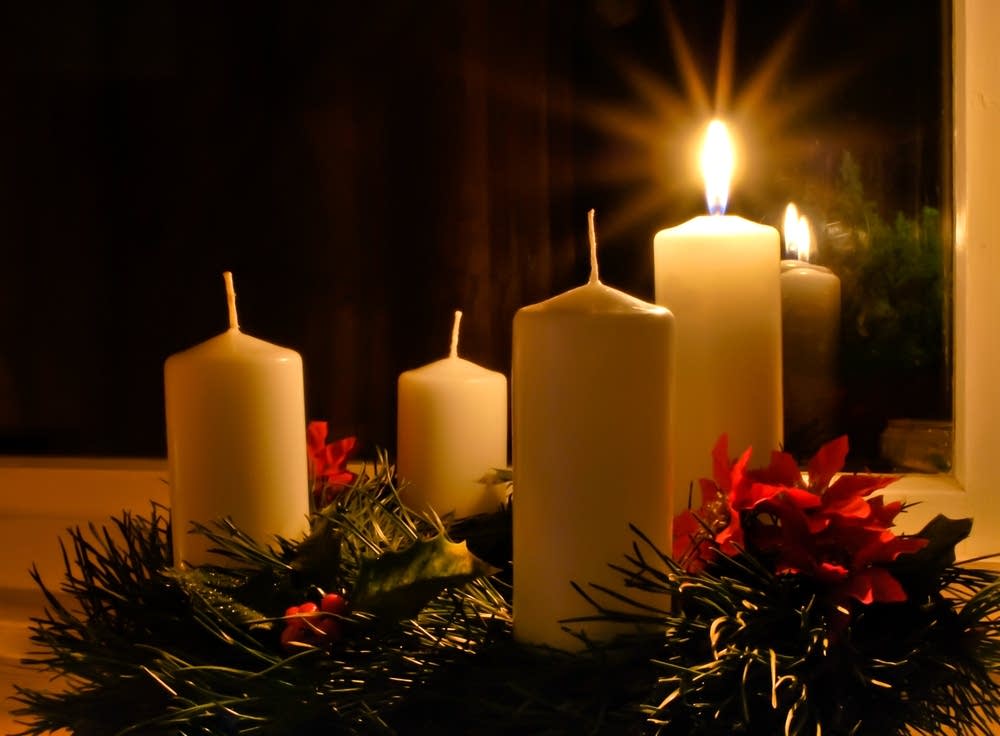

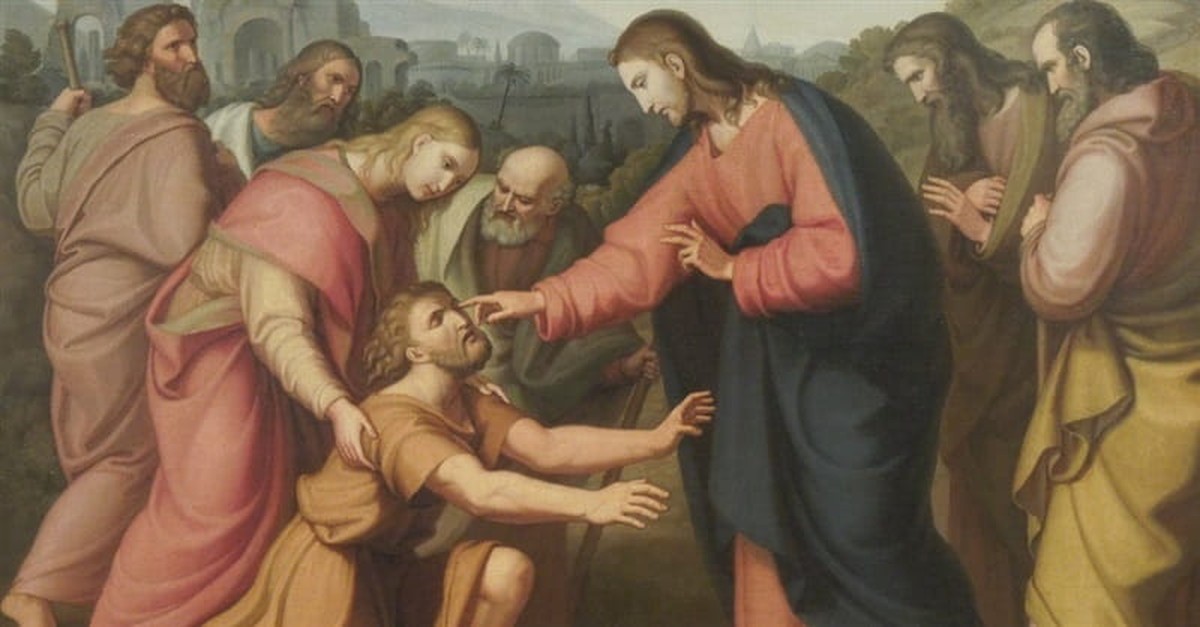















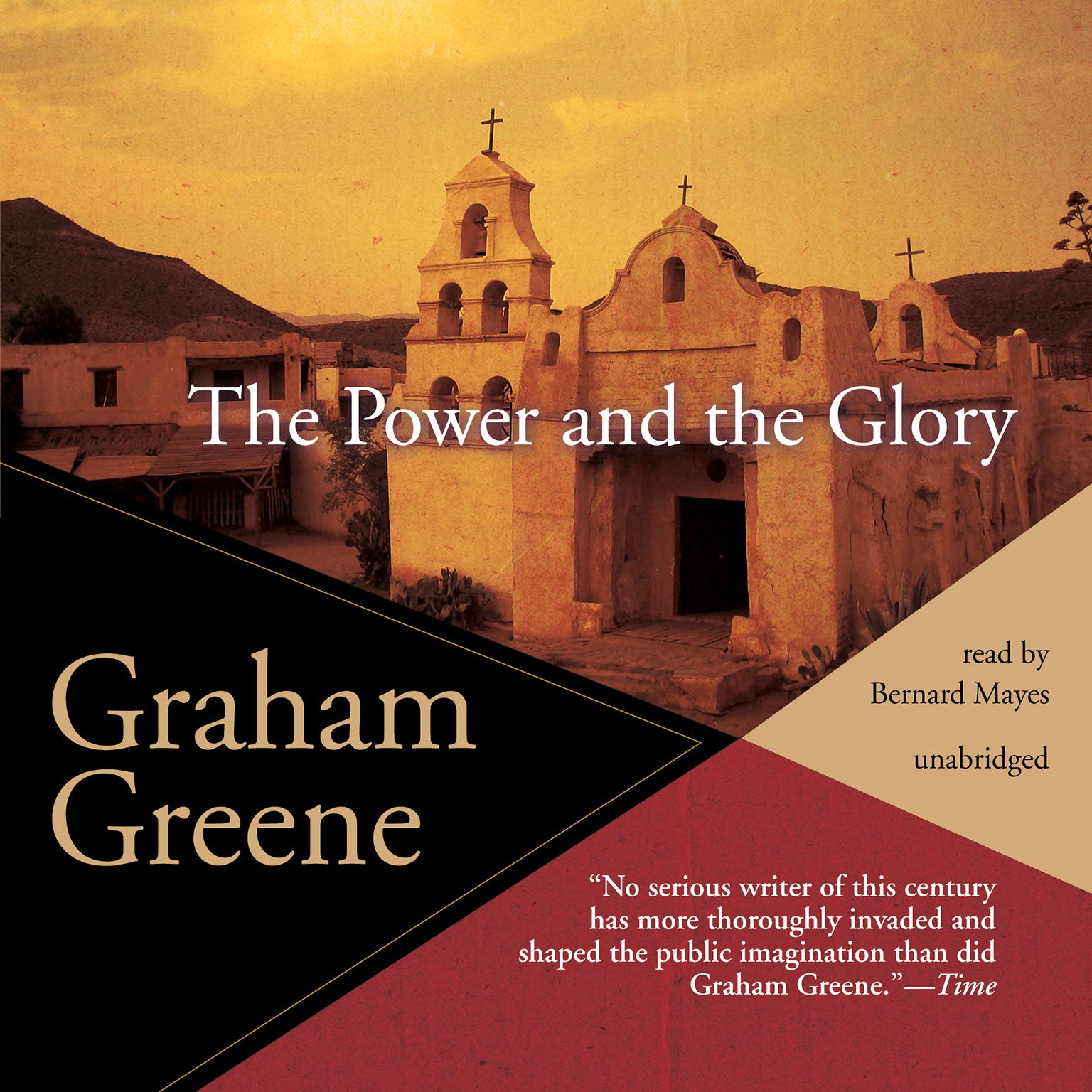

.jpg)

